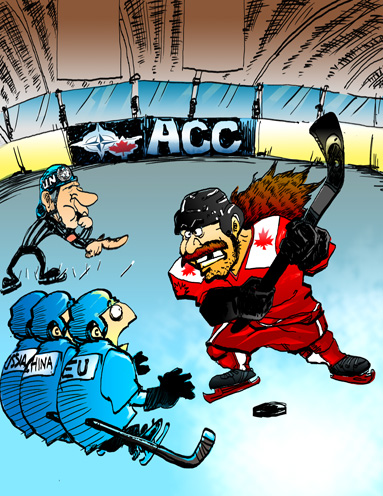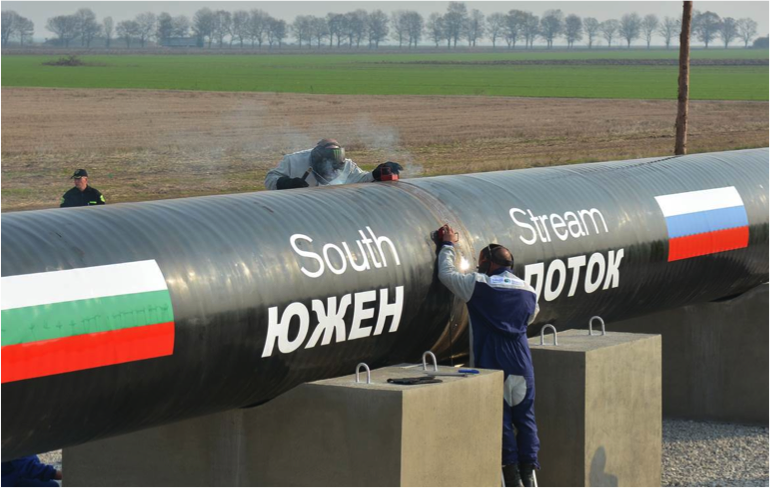This article is the second installment of a three part series on Canadian Foreign Policy. The initial background piece can be found here.
Activity and Association
Bilateral free trade agreements are a good indication of principal power. Canada currently has six bilateral free trade agreements with Colombia, Peru, the European Free Trade Association, Costa Rica, Chile, and Israel and is negotiating with Europe and Japan – respectively the largest and third largest market in the world. Emerging markets such as China as well as market powerhouses like the EU and Japan realize the economic potential of Canadian commodities and investment. With the lowest corporate taxes in the G8 and dependable banking regulations, foreign investors view Canada as a reliable country for their investments. So with the influx of foreign capital and reliance on Canadian commodities, Ottawa may have the ability to pursue its own policies and interests in the international system.
However, the Canadian government must also be careful of not to compromise principle for the interest of the economy. Pursing freer trade with countries such as China benefits both countries tremendously, but allowing a non-democratic, state capitalist country such as China to own any fraction of Canadian commodities goes against the trajectory of the liberal world order. The CNOOC-Nexen deal is a great reminder that no matter how tempting a deal may be the Canadian government cannot allow s foreign power − especially by a country that does not play by our standards and rules – ownership of our land.
To complicate the situation further, on September 9, 2012, Canada’s Minister of International Trade and Minister for the Asia-Pacific Gateway, Ed Fast, and China’s Minister of Commerce, Chen Deming, signed a Foreign Investment Promotion and Protection Agreement (FIPA) between Canada and China. The FIPA―so the government says― is to ensure greater protection to foreign investors against discriminatory and wholly arbitrary practices, to provide adequate and prompt compensation in the event of an expropriation, and to enhance predictability of the policy framework affecting foreign investors and their investments. Critics and opposition members have claimed that FIPA is lopsided in China’s favour. Proponents state:
“The agreement contains reciprocal obligations that will ensure both Canadian and Chinese investors receive greater protection against discriminatory and arbitrary practices. For example, Canadian investors will be guaranteed to receive the same treatment provided to other foreign investors and, once established in China, would be entitled to the same treatment as domestic investors. In the event of expropriation, Canadian investors would be entitled to compensation.”
What the champions of the Canada-China FIPA forget to mention is Canadian investors have never won compensation in any of their 16 known lawsuits against the U.S. and other countries under NAFTA and FIPAs with other states. In fact, Canada has been sued about 30 times under NAFTA Chapter 11 although many cases were minor. Canada has paid out around $170 million in compensation in four cases to date.
Critics are wrong to say Canada has never signed a deal like this with any other country. The Canada-China FIPA is one of 24 foreign investment treaties that Canada has implemented with other countries. The issue at hand is that usually the capital-importing position under these treaties is occupied by a developing or transitioning economy. Under the Canada-China treaty it is occupied by Canada. The government has not taken steps to ensure that there is not now and will not be future Chinese-ownership of assets of which the government is unaware of. The CNOOC-Nexen deal and the Canada-China FIPA actually diminish rather than enhance Canada’s power projection. It gives China the upper-hand over Canadian commodities and undermines Ottawa to strategically use its natural resources for geo-political interests.
Canada recently ended its combat role in Afghanistan, allowing for the government to focus on retrenchment policy and to invest more capital at home. With no major war or intervention to tie down national treasure, now is the time for Ottawa to build a national platform that will help propel Canada’s future as a principal power.





